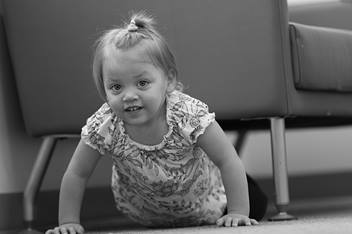What to Expect
Welcome to The Heart Center at Nationwide Children's! To help you feel more comfortable, we want you to have all the information you need about what to expect during your or your child's stay with us.
When You Arrive
When you or your child is admitted to The Heart Center (or "H4A" as it's known inside the hospital), you’ll meet our staff. We’ll show you around the unit. Ask questions — we’re ready with answers!
You or your child will have a complete assessment right away. It will include:
- Vital signs. We measure temperature, respiration rate and blood pressure at admission. After that we take vital signs every four hours.
- Weight. We weigh patients on admission and daily after that. Adults are typically weighed at 8 a.m. and children at 8 p.m.
- Medicines. We’ll review your current medicines.
- Lab tests. If you or your child has any orders for testing or lab draws, we’ll help you get them done.
While You’re Here
Our goal at The Heart Center is your increased independence, participation in care and working toward going home!
As part of this goal, you and your family are at the center of your care team. Whether you or your child is newly diagnosed or has had a congenital heart condition for many years, we include you in treatment decisions. During your stay, you're invited to be part of our family-centered rounds. It’s an opportunity to learn from the experts who are involved in your or your child’s care.
Safety
Your safety in your room and on our unit is a top priority, and you can help. Please ask questions whenever you don't understand something. Every question you ask helps us provide better care. You can also help with these steps:
Avoiding bacteria and other germs is an ongoing effort. Keep these goals in mind every day:
- Wash your hands often.
- Tell your visitors and caregivers to wash their hands.
- Ask friends and family who are sick not to visit.
- Keep the room clean and free of clutter.
If you see something that concerns you, let us know. When you speak up for safety you help us be our best!
Recognize that as the parent of a sick child, you're at risk for stress-related fatigue and burnout. To keep yourself well so you can take care of your child, follow this advice:
- Try to take frequent breaks.
- Eat as regularly as you can. (Show your parent badge for free drinks in the cafeteria!)
- Visit our Family Resource Center for resources such as haircuts, massage therapy and a loaner laptop or iPad.
- Try to get enough sleep.
When You're Ready to Leave
Going home is an important event. Your team will make sure you're ready. And we'll keep you informed and prepared at every step.
You can help ensure that you or your child's discharge goes smoothly. Your team will explain the process. If there's anything you don't understand, ask a team member to explain in clear language. We're here to help.
Before you leave, remember to:
- Go over your or your child's meal and medication schedule with your nurse.
- Ask about outpatient care and follow-up care. Check appointment dates and times in your discharge paperwork.
- Check that you have everything you'll need at home. If you're not sure, ask!
- Take home your medicines.
- If you stored breast milk, take any extra home.
- Keep your parent bracelet and patient bracelet until after discharge.
Some patients need additional tests or procedures before they go home. Your care team will let you know if you or your child need any of these:
- Echocardiogram
- Chest X-ray
- Electrocardiogram (EKG)
- Hearing screen
- Vaccinations
Your team will make sure you're prepared to take care of yourself or your child at home. We cover all the bases, including:
- Making sure you have the right car seat.
- Teaching you about preparing formula and giving medicines.
- Training you in CPR.
- Helping you make arrangements for home care.
- Getting prior authorization for your child's medicines.
- 24-hour room-in
After you go Home
It's difficult to remember everything, especially when you're under stress. If you have questions after you go home, call us.
- For calls between 8 a.m. and 5 p.m., Monday through Friday, use our cardiology triage number: (614) 722-2530.
- If you have an urgent question after hours, call (614) 722-2000, and ask to speak with the cardiologist on call.

